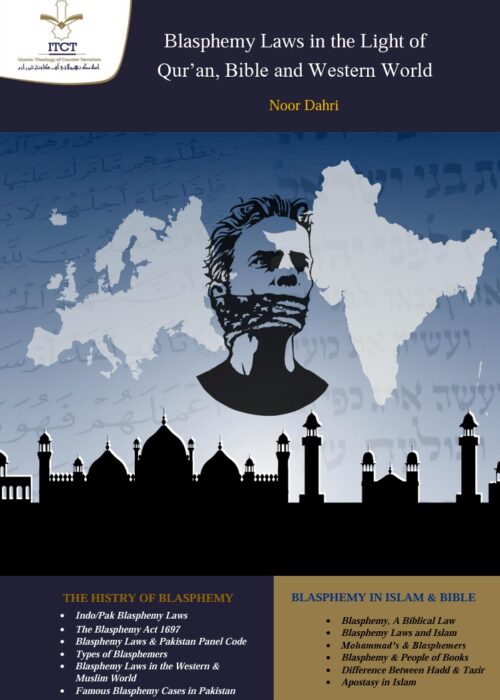The Islamist Alliance for Europe
Summary: The Islamist phenomenon, understood as the political use of Islam to pursue goals that…



Islamic Theology of Counter Terrorism (ITCT) is a UK-based Counter Islamist Terrorism think tank. ITCT is a non-political and non-profitable organisation.
There is not a single organisation that specifically counters the narratives of Islamist terrorism by using the tools of Islamic Theology.
Our aim is not only to counter the menace of Islamist Terrorism but also to educate misguided Muslims who are leaning towards Islamist extremism.

Summary: The Islamist phenomenon, understood as the political use of Islam to pursue goals that…
Summery: The recent London Bridge attack left many questions behind that yet need to be…

The history of blasphemy is long and complicated. The law was actually introduced by the British Empire in India and was supported by Muslims through the religious texts afterwards. If we look at the texts, one with great knowledge would see the Islamic arguments are weaker in support of the Blasphemy law. There is nothing in the Quran or the authentic teachings of the Prophet of Islam justifying the killing of people for opposing, criticising, humiliating or showing irreverence towards Islamic holy personages, religious artefacts, customs and beliefs.
The people of South Asia, especially in India and Pakistan, are still very confused how, where and for whom this law should be implemented. Some people apply this law over the people who leave Islam and accept another religion (apostasy); some apply it against those who insult the religion by their actions or words or even mock the Prophet of Islam (blasphemy).
While living in Pakistan, I have personally experienced situations in which people were killed: in some cases, it was those who even talked ill about their sects, and in another, an Imam (Muslim cleric) in the province of Punjab was killed under the false allegation of blasphemy. His crime was related to burning the unwanted pages of the Quran outside his mosque, something that is allowed in Islam. Later, it was found that the deceased Imam belonged to a Salafi group and his opponent group killed him due to personal religious enmity.
In Pakistan, from the 1990’s until now, more than 90 people have been killed by various traditional means under the false allegation of the blasphemy law.1 One of the victims of blasphemy was a governor of Punjab province Salman Tasir, who was killed by his own bodyguard, Mumtaz Qadri (a religious Brelvi extremist).2 As well as an assassination of Christian minister Shahbaz Bhatti over his open and public criticism on Blasphemy law.3 In prisons, thousands of people await their trials and a few of them got the death penalty but nothing happened so far, and they have been left to their fate.
Islam denounced the practice of barbarism such as forced conversion into Islam, harming people based on their religious beliefs, killing under accusation of Blasphemy or threats to people who wish to leave Islam. The world is shocked and surprised by the attitude of Muslims, especially of Pakistan, as on the one hand they preach to the world that Islam is a religion of peace and harmony and on the other hand they show aggression, violence, ill treatment and seizing basic human rights from minority communities. The primary goal of this paper is to form a foundation for understanding how the Prophet of Islam consistently showed honour and nobility when insulted and attacked.
The Ikhwan al Muslimun better known as the Muslim Brotherhood is a transnational Sunni Islamist organisation founded in Egypt…
The Islamic Revolutionary Guard Corps (IRGC) is a branch of the Iranian Armed Forces, founded after the…
Hizb ut-Tahrir is an international, pan-Islamist and fundamentalist political organisation which describes its ideology as Islam,…
Liwa Fatemiyoun also known as Fatemiyoun Division, Fatemiyoun Brigade, or Hezbollah Afghanistan, is an Afghan Shia militia formed in…
Saraya al-Mukhtar (The Mukhtar Brigade or SaM) is a Shia extremist organisation that was established…